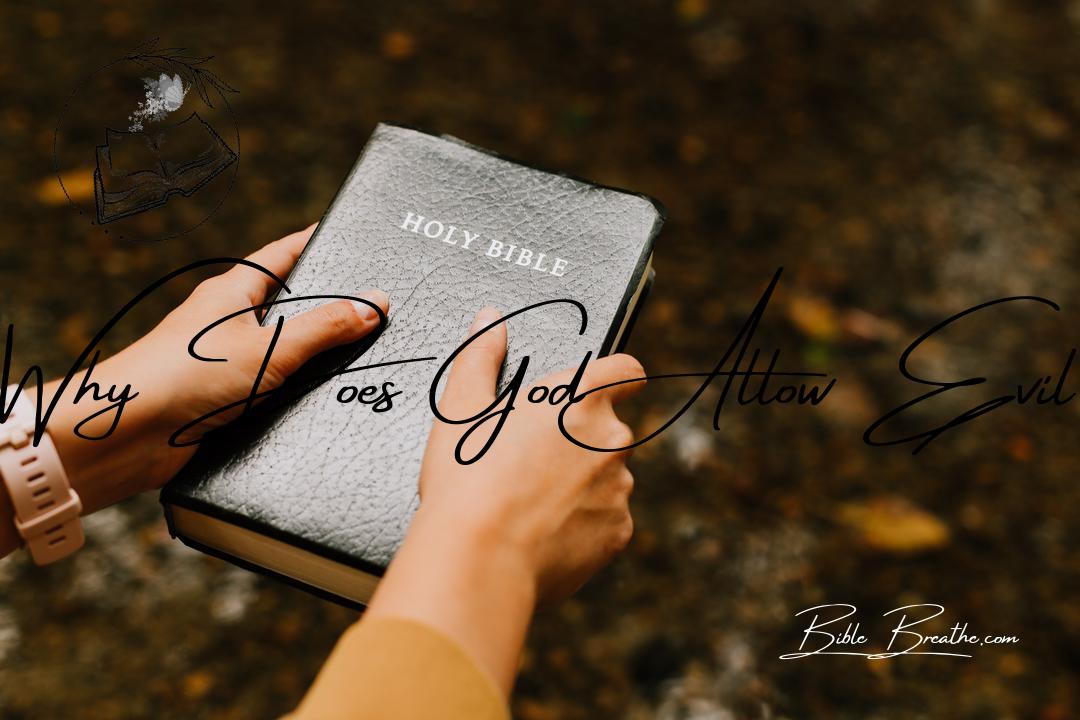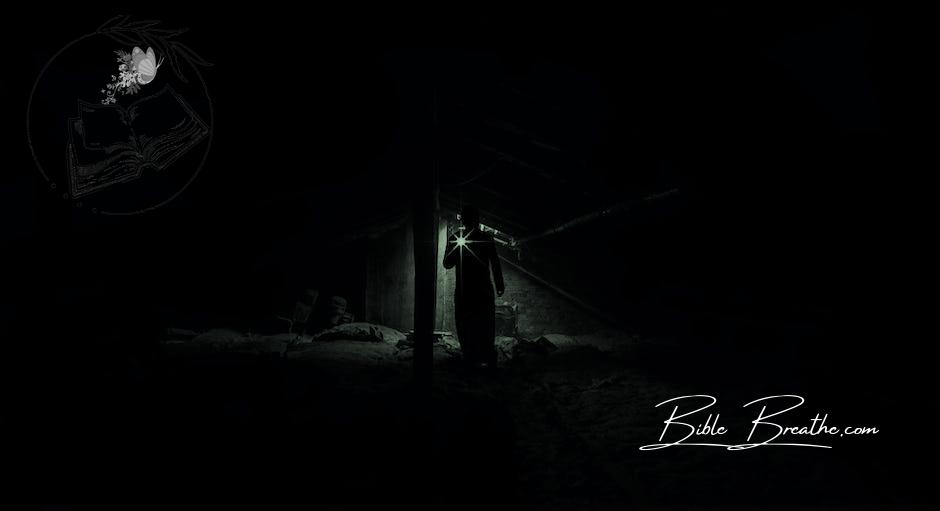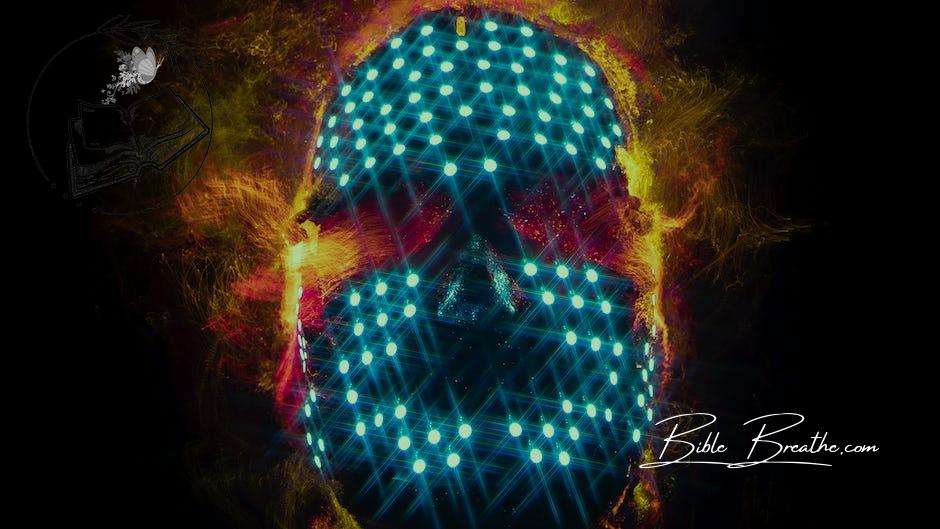Why in the world would God allow evil, right?
It’s like standing in a storm and wondering why a loving Father would let thunder rumble.
This question, my friends, is as old as the hills, and it’s got us all scratching our heads.
From the Problem of Evil to the whole deal with Free Will, folks have debated this since forever.
Some say a good God can’t have anything to do with evil.
Others ponder if evil’s like a thorn in the Creator’s side.
You’ve got Satan and Evil, gratuitous evil, stuff we mess up, and even the natural disasters that make you question life itself.
Why does pain exist?
Is it a pop quiz for our faith or something deeper in God’s grand design?
So let’s dive in.
We’re talking morality, sin, and the sweet taste of redemption, trying to figure it all out.
Our journey will take us into the wilds of theodicy, omnipotence, and the idea of a divine plan.
Hang on, folks, we’re going deep into the heart of why God allows evil.
🌟
Key Takeaways
- The question of why God allows evil is profoundly complex, reflecting the depth of human inquiry into theology, philosophy, and faith.
- Numerous explanations attempt to grapple with this question, from theological perspectives such as theodicy (exploring the existence of evil in a world created by a benevolent God) to philosophical approaches like free will and moral development.
- Theodicies, while seeking to justify the coexistence of a benevolent God and evil, often face critiques for their limitations in fully addressing the scope and magnitude of suffering in the world.
- Concepts like free will suggest that humans, endowed with the ability to choose, are responsible for the presence of evil. However, this raises further questions about the extent of God’s intervention and divine plan.
- The necessity for personal reflection and understanding is vital when grappling with the question of God and evil. It calls for an exploration of individual beliefs, values, and interpretations, encouraging a deeper relationship with faith and a more nuanced comprehension of the human experience within the framework of divinity.
Wrestling with the Paradox: Why Does God Allow Evil?
Photo modified by BibleBreathe.com. Original photo by Lennart Wittstock on Pexels
Life often unfolds like a complex tapestry, weaving moments of joy, love, and beauty with threads of pain, suffering, and malevolence.
This intricate pattern raises profound questions about the nature of existence and the divine.
In our quest to understand this enigma, we grapple with the age-old question: why does God allow evil?
Exploring the Concept of the “Problem of Evil”
The “Problem of Evil” is a philosophical and theological dilemma that ponders the coexistence of a benevolent, all-powerful God with the undeniable presence of evil and suffering in the world.
It’s akin to trying to reconcile the warmth of sunlight with the darkness of the shadows it casts.
In this quest for understanding, we delve into the depths of human consciousness and the realm of divine wisdom.
It’s like peering into a dimly lit room, trying to make sense of the contrasting shades and forms.
“For there is no respect of persons with God.” – Romans 2:11 (KJV)
The Paradox: An All-Good God and the Allowance of Evil
Imagine a parent granting their child the freedom to choose between right and wrong, hoping they would embrace goodness willingly.
In a similar vein, God endowed humanity with free will—a gift of incredible value.
Free will allows us to love, create, and experience the richness of life, but it also opens the door to choices that lead to evil.
God’s benevolence isn’t undermined by the presence of evil; rather, it showcases the depth of His love and respect for our autonomy.
It’s akin to a sculptor, giving life to a block of marble, knowing that the chisel may sometimes strike in unexpected ways.
I call heaven and earth to record this day against you, that I have set before you life and death, blessing and cursing: therefore choose life, that both thou and thy seed may live.” – Deuteronomy 30:19 (KJV)
In this intricate dance between divine sovereignty and human freedom, the shadows of evil challenge us to seek the light, to choose love over hate, and to create a world where compassion triumphs over cruelty.
It is a journey that tests our faith and refines our souls, ultimately bringing us closer to the heart of God.
Embracing the Mystery of the Divine Plan
In the tapestry of life, the threads of suffering and evil are necessary to create a masterpiece.
Our limited perspective cannot fathom the entirety of God’s divine plan, but we trust in the hands that weave our story, believing that every thread, whether dark or light, contributes to a greater purpose.
Through faith and introspection, we strive to grasp the profound wisdom of a benevolent God allowing a world where evil exists, recognizing that our understanding is but a glimpse of the eternal masterpiece in the making.
For my thoughts are not your thoughts, neither are your ways my ways, saith the LORD.” – Isaiah 55:8 (KJV)
Wrestling with the Age-Old Question: Why Does God Allow Evil?
Photo modified by BibleBreathe.com. Original photo by Mikhail Nilov on Pexels
Life’s a whirlwind of experiences, isn’t it?
Amidst the rays of joy and happiness, we find ourselves caught in the shadows of evil and suffering.
And in this journey, a timeless question echoes: why does God allow evil?
It’s a question that digs deep into our beliefs and challenges how we see the divine.
The Tapestry of Free Will
One way to understand this cosmic dance is through the lens of free will.
Think of life as a grand stage, and we’re the actors given the freedom to play our parts.
It’s like having a script, but we’re not just reciting lines; we’re ad-libbing.
We can choose the virtuous lines or veer into darker dialogues.
This freedom defines our humanity—it lets us love, create, and pave our own paths.
“And the LORD God commanded the man, saying, Of every tree of the garden thou mayest freely eat…” – Genesis 2:16 (KJV)
Yet, in this freedom lies the potential for misuse, for choices that can cause harm and suffering.
God, in His wisdom, allows this because without the contrast of evil, our choices would lose their depth.
Our capacity to love wouldn’t be genuine if it were forced, like a puppet’s movements.
In this vast theater of life, our decisions, both virtuous and wrong, shape the storyline.
The Theodicy Dilemma
However, the idea that free will justifies all evil isn’t a closed book.
Some question this when faced with gratuitous evil—suffering without apparent purpose.
Why would a loving God allow such horrors that seem to serve no greater good?
“The LORD is righteous in all his ways, and holy in all his works.” – Psalm 145:17 (KJV)
Deep questions arise, challenging whether an all-powerful, all-loving God could craft a reality where suffering is absent while preserving our free will.
This leads us into the complex realms of divine omnipotence and the nature of evil itself.
Divine Wisdom in the Shadows
As we wrestle with these philosophical puzzles, we must acknowledge our limitations.
It’s like trying to explain the cosmos to an ant.
God’s ways are shrouded in mystery, beyond our grasp.
Perhaps, in the vast tapestry of existence, every thread, even the dark and seemingly tangled ones, weaves into a design far beyond our understanding.
In our quest for answers, we must hold onto faith and trust in the goodness of God, even amidst the enigma of evil.
The divine plan, though beyond our sight, is guided by a wisdom that surpasses our understanding.
For my thoughts are not your thoughts, neither are your ways my ways, saith the LORD.” – Isaiah 55:8 (KJV) 🌌
Unraveling the Enigma: The Creation of Evil
Photo modified by BibleBreathe.com. Original photo by Anete Lusina on Pexels
The existence of evil in a world created by a loving and omnipotent God presents an intellectual and spiritual paradox, a knot that has challenged minds and hearts throughout the ages.
Let’s untangle this intricate web of thought and seek to understand why a benevolent God would allow the creation of anything evil.
Pondering the Purpose: Why Would a Benevolent God Create Anything Evil?
Imagine a storyteller crafting a tale—each character, every twist, woven together to create a captivating narrative.
In a similar vein, God, the ultimate Author, crafted a universe with intricate characters, choices, and consequences.
God, in His benevolence, granted free will—a divine gift that allows us to choose our paths, to love, and to understand the depth of goodness.
However, this gift also paved the way for the potential of evil.
It’s akin to giving a child crayons, hoping they’ll create art but acknowledging the possibility of a stray mark on the canvas.
“See, I have set before thee this day life and good, and death and evil.” – Deuteronomy 30:15 (KJV)
In the grand tapestry of existence, the presence of evil serves to highlight the brilliance of good.
Just as shadows emphasize the brightness of light, evil accentuates the beauty of goodness.
God, in His divine wisdom, allows this contrast, enabling us to perceive and appreciate the profound significance of virtue.
The Weight of Knowledge: God’s Foreknowledge and Humanity’s Choices
God’s omniscience extends beyond the confines of time.
He knows the choices we will make, the paths we’ll tread, and yet, He grants us the autonomy to make those decisions.
It’s like a wise parent foreseeing their child’s mistakes but allowing them to learn and grow from those experiences.
God’s knowledge of the choices many will make, leading them towards suffering and hell, is a weighty concept.
Yet, it doesn’t diminish His benevolence.
In His understanding, God offers guidance, redemption, and the opportunity for change.
The Lord is not slack concerning his promise, as some men count slackness; but is longsuffering to us-ward, not willing that any should perish, but that all should come to repentance.” – 2 Peter 3:9 (KJV)
God’s plan involves redemption and salvation for those who turn to Him, even in the face of their past choices.
The divine narrative isn’t over, and each soul has the potential for transformation and reconciliation with God.
Embracing Divine Wisdom Amidst the Enigma
In our pursuit of understanding, we embrace the profound mystery of God’s plan.
It’s a narrative still unfolding, where every soul’s story is unique, and the divine purpose, grand and intricate, is gradually revealed.
“For now we see through a glass, darkly; but then face to face: now I know in part; but then shall I know even as also I am known.” – 1 Corinthians 13:12 (KJV)
Unveiling the Enigma: Satan and the Presence of Evil
Photo modified by BibleBreathe.com. Original photo by cottonbro studio on Pexels
In the grand drama of existence, a significant character steps into the spotlight: Satan, the embodiment of rebellion and malevolence.
Understanding Satan’s role offers a glimpse into the enigma of evil and how it weaves through the fabric of our lives.
A Choice in the Shadows
Imagine a being of immense power and beauty, gifted with free will.
This was Satan, once an angel of light.
Yet, despite the absence of evil in the divine creation, Satan chose a different path.
It’s like having a canvas untouched by darkness, and yet, one chooses to paint shadows.
The allure of pride and the desire for supremacy led to this fateful choice.
How art thou fallen from heaven, O Lucifer, son of the morning! how art thou cut down to the ground, which didst weaken the nations!” – Isaiah 14:12 (KJV)
The transition from light to darkness in a being initially designed for good is perplexing.
It hints at the depth of free will — the power to choose even in the absence of inherent evil.
Here lies a fundamental debate: is evil a prerequisite for free will, or can the seeds of defiance sprout from the very essence of choice itself?
The Paradox of Free Will
Examining the choice made by Satan confronts us with a paradox.
The presence of free will, a divine gift, allows for both love and rebellion.
Just as a parent granting their child the freedom to choose their path, God bestowed this freedom upon His creation.
In this autonomy, however, lies the potential for defiance.
And the great dragon was cast out, that old serpent, called the Devil, and Satan, which deceiveth the whole world: he was cast out into the earth, and his angels were cast out with him.” – Revelation 12:9 (KJV)
Thus, evil found its way into the pristine creation.
Satan’s rebellion marked the inception of malevolence, a force contrary to the divine plan.
This raises profound questions about the nature of free will and its coexistence with the possibility of evil.
Divine Plan: A Mystery Unveiled
In the grand tapestry of existence, God’s design incorporates even the shadows.
The story of Satan and the presence of evil are part of a narrative we may not fully comprehend.
It’s like a piece of music, where the somber notes enhance the beauty of the symphony.
In the end, it beckons us to trust in divine wisdom, believing that ultimately, goodness will prevail.
And we know that all things work together for good to them that love God, to them who are the called according to his purpose.” – Romans 8:28 (KJV) 🌌
Unveiling the Tapestry of Free Will and Divine Purpose
Photo modified by BibleBreathe.com. Original photo by Sebastian Voortman on Pexels
In the grand theater of existence, the concept of free will takes center stage—a profound force that shapes the human experience and the unfolding drama of life.
Let’s lift the curtain and explore the intricate interplay between free will, the benevolence of God, and the enigma of evil.
The Presupposition: Embracing the Existence of Free Will
Imagine a painter before a canvas, brushes in hand, with an array of colors to choose from.
Similarly, God, the master artist, granted humanity the palette of free will.
It’s a gift that allows us to paint the portrait of our lives with choices and actions.
The existence of free will presupposes the possibility of both good and evil choices.
Just as the painter might choose hues that evoke joy or sorrow, our choices can manifest love or hatred, kindness or cruelty.
God’s benevolence shines through this gift, for He desires authentic relationships founded on genuine choices, not coercion.
“And ye shall know the truth, and the truth shall make you free.” – John 8:32 (KJV)
Divine Restraint: The Coercion of Free Will by God
Imagine a guide on a winding mountain trail, offering advice but allowing hikers to choose their path.
God, too, guides us through moral and spiritual insights but respects our autonomy to decide.
Coercion of free will would be akin to painting by numbers, removing the essence of choice and authenticity.
God, in His wisdom, refrains from this, granting us the freedom to select our colors and create our unique life canvases.
“Stand fast therefore in the liberty wherewith Christ hath made us free, and be not entangled again with the yoke of bondage.” – Galatians 5:1 (KJV)
The Philosophical Challenge: Navigating Objections to Free Will
Philosophical musings often grapple with the apparent clash between God’s omniscience and our free will.
It’s like contemplating the intersection of fate and autonomy, seeking to unravel a complex riddle.
Yet, even in this intellectual labyrinth, we find solace in the idea that God’s understanding surpasses our comprehension.
Our free will, although seemingly paradoxical, is part of a grander design—a symphony where each note, whether harmonious or dissonant, contributes to the beauty of the whole.
For I know the thoughts that I think toward you, saith the LORD, thoughts of peace, and not of evil, to give you an expected end.” – Jeremiah 29:11 (KJV)
In this divine symphony, our choices matter, and we’re called to embrace our freedom responsibly, making choices that resonate with the melody of love and compassion.
The mystery of free will and the divine plan is an awe-inspiring dance, inviting us to embrace the harmony of God’s purpose.
Embracing the Melody: Harmonizing Free Will with Divine Grace
As we contemplate this complex interplay, we find a balance between our free will and God’s wisdom.
It’s a melody that, when played in tune, leads us toward redemption, goodness, and an ever-deepening relationship with the divine.
“Trust in the LORD with all thine heart; and lean not unto thine own understanding. In all thy ways acknowledge him, and he shall direct thy paths.” – Proverbs 3:5-6 (KJV)
Navigating the Shadows: Understanding Gratuitous Evil
Photo modified by BibleBreathe.com. Original photo by Pixabay on Pexels
In the grand theater of existence, a troubling subplot unfolds known as gratuitous evil, challenging our perception of a benevolent God.
It’s like stumbling upon a plot twist that seems senseless, leaving us questioning the purpose behind excessive suffering.
The Mystery of Unnecessary Suffering
Imagine a painting marred by chaotic strokes, seemingly purposeless and disturbing the overall beauty.
Gratuitous evil is akin to these errant brushstrokes, appearing out of place in a world designed by a loving Creator.
Why would a benevolent God permit suffering that seems to serve no greater good?
“For I reckon that the sufferings of this present time are not worthy to be compared with the glory which shall be revealed in us.” – Romans 8:18 (KJV)
This mystery confronts us with the limits of our understanding.
It’s like trying to grasp the intricacies of the universe with a limited perspective.
Our understanding, often confined to a single brushstroke, fails to comprehend the masterpiece in its entirety.
The Tapestry Beyond Our Vision
In the grand design, every stroke, even the seemingly errant ones, contributes to the ultimate masterpiece.
Just as a master artist sees the beauty of the whole canvas, God comprehends the intricate interplay of events, choices, and suffering.
We’re akin to characters in a novel, unable to comprehend the plot from our limited vantage point.
“Trust in the LORD with all thine heart; and lean not unto thine own understanding.” – Proverbs 3:5 (KJV)
Gratuitous evil challenges us to trust in the wisdom of the Divine.
In the grand narrative of existence, God orchestrates a symphony of events, even those discordant to our ears.
Our faith is tested when faced with suffering that seems unnecessary, yet it’s in these very moments that our faith can find its truest expression.
The Hope Beyond the Darkness
In the shadows of gratuitous evil, we must hold on to hope.
For even in the darkest chapters of life, a greater story unfolds.
This is a tale of redemption, of a divine plan beyond our grasp, leading to a realm where suffering and sorrow are mere memories.
“And God shall wipe away all tears from their eyes; and there shall be no more death, neither sorrow, nor crying, neither shall there be any more pain: for the former things are passed away.” – Revelation 21:4 (KJV)
In the end, gratuitous evil challenges our faith, urging us to look beyond the immediate, to trust in a divine plan that promises a dawn after the darkest night.
🌅
Navigating Theories and Hopes: Understanding the Role of Evil in Divine Plan
Photo modified by BibleBreathe.com. Original photo by Merlin Lightpainting on Pexels
In the tapestry of existence, we often encounter threads of suffering and malevolence that challenge our understanding of a loving and omnipotent God.
Let’s navigate through various theories and hopes that seek to shed light on the presence of evil and the promise of a greater good.
The Quest for Greater Good: A Divine Paradox
Imagine a surgeon delicately removing a cancerous growth to restore health.
Similarly, some believe that God allows the existence of evil to bring about a greater good—a world where virtues like courage, resilience, and empathy can flourish in the face of adversity.
The paradox lies in comprehending how pain and suffering can lead to a more profound understanding of love, compassion, and the value of goodness.
It’s akin to the refining of gold through intense heat, where trials purify the human soul.
“And we know that all things work together for good to them that love God, to them who are the called according to his purpose.” – Romans 8:28 (KJV)
The Compensation Theory: Balancing Earthly Suffering with Eternal Glory
Imagine a weary traveler enduring a storm, knowing a warm hearth awaits at the end of the journey.
Similarly, the compensation theory suggests that earthly suffering is compensated by the promise of an eternal reward in heaven.
In this perspective, the struggles and pain of this world are seen as temporary, a fleeting storm on the path to everlasting joy and peace.
The hardships we endure become the stepping stones to a heavenly abode where sorrow will be no more.
“For our light affliction, which is but for a moment, worketh for us a far more exceeding and eternal weight of glory.” – 2 Corinthians 4:17 (KJV)
The Complexity of Divine Wisdom: Wrestling with Philosophical Theodicies
Philosophical theodicies delve into the complexities of divine wisdom and seek to reconcile the existence of evil with an all-loving God.
It’s akin to attempting to understand the intricate gears of a cosmic clockwork.
While our human minds may grapple with the “why” of evil, faith calls us to trust in God’s infinite wisdom.
It’s an acknowledgment that our understanding is limited, and the grand tapestry of existence, with its joys and sorrows, is part of a divine plan beyond our comprehension.
“O the depth of the riches both of the wisdom and knowledge of God! how unsearchable are his judgments, and his ways past finding out!” – Romans 11:33 (KJV)
Embracing Hope: A Journey Toward Redemption
In the face of life’s perplexing questions, we find solace in hope—a flickering flame that illuminates the darkest corners of our doubts.
Our journey is one of trust, surrender, and an unwavering belief that in the end, love and goodness will prevail, and evil will be vanquished.
“And God shall wipe away all tears from their eyes; and there shall be no more death, neither sorrow, nor crying, neither shall there be any more pain: for the former things are passed away.” – Revelation 21:4 (KJV)
Pondering the World: Exploring the Coexistence of Good and Evil
Photo modified by BibleBreathe.com. Original photo by Keefe Tay on Pexels
As we journey through the complex landscape of existence, we find ourselves facing a fundamental conundrum: the existence of evil in a world purportedly created by a benevolent God.
To unravel this enigma, we must observe this world with discerning eyes, understanding the interplay of good and evil, both man-made and inherent in the fabric of nature.
The Intricate Dance of Existence
Imagine this world as a grand ballroom, where light and darkness engage in an intricate dance.
In this metaphorical ballroom, the music of free will plays, guiding our steps.
God, the divine choreographer, grants us the freedom to choose our dance, be it one of grace or discord.
It’s in this freedom that evil finds its foothold, a dance of its own.
“See, I have set before thee this day life and good, and death and evil.” – Deuteronomy 30:15 (KJV)
A world where evil is necessary for free will is like a ballroom where dancers must have the choice to misstep, to stumble, to choose moves that disrupt the harmony.
In this intricate choreography of existence, the choices we make, both beautiful and flawed, shape the dance.
The Tapestry of Man-Made and Natural Evil
In this grand ballroom, we encounter two types of dances: the deliberate missteps we take, known as man-made evil, and the accidental stumbles inherent in the nature of things, known as natural evil.
Man-made evil is akin to a dancer purposefully treading on others’ toes, disrupting the dance out of ego, greed, or malice.
We have the power to choose kindness or cruelty, and sadly, at times, we choose the latter.
“Whoso diggeth a pit shall fall therein: and he that rolleth a stone, it will return upon him.” – Proverbs 26:27 (KJV)
On the other hand, natural evil is like the unexpected slip on a polished ballroom floor.
It’s the consequence of a world governed by physical laws and natural processes.
Natural disasters, diseases, and the cycle of life and death are part of this inherent dance.
A Glimpse into Divine Wisdom
As we observe this ballroom of existence, we glimpse the divine wisdom.
God, in His benevolence, gave us the power to dance freely, to love deeply, and to choose our steps.
Yet, in this freedom, we sometimes falter, creating discord.
He also bestowed a world governed by natural laws, reminding us of our place in the vast tapestry of creation.
In this complex interplay of good and evil, we must seek understanding and strive to dance a dance of kindness, compassion, and love, aligning our steps with the music of the divine.
For in this dance, we find the true purpose of our existence.
“Let love be without dissimulation. Abhor that which is evil; cleave to that which is good.” – Romans 12:9 (KJV) 🕊️
Frequently Asked Questions (FAQs) About Why Does God Allow Evil
Why did God set the Tree of Knowledge of Good and Evil?
God placed the tree in the Garden of Eden as a test of obedience.
He wanted humanity to choose to obey Him willingly, demonstrating free will.
It served as a moral and spiritual lesson about the consequences of disobedience.
How does God use physical evil to accomplish His work on earth?
God can use physical evil, such as suffering and hardship, to bring about greater spiritual good.
It can lead to personal growth, increased compassion, and a deepened faith.
While it’s challenging, God can work through these trials to shape our character and draw us closer to Him.
Why does God allow suffering in the world?
The presence of suffering in the world is a complex theological question.
It can be seen as a consequence of human free will, the brokenness of creation due to sin, a means to build character, and a way for God to demonstrate compassion, offering hope and redemption amid suffering.
{
“@context”: “https://schema.org”,
“@type”: “FAQPage”,
“mainEntity”: [
{
“@type”: “Question”,
“name”: “Why did God set the Tree of Knowledge of Good and Evil?”,
“acceptedAnswer”: {
“@type”: “Answer”,
“text”: “God placed the tree in the Garden of Eden as a test of obedience. He wanted humanity to choose to obey Him willingly, demonstrating free will. It served as a moral and spiritual lesson about the consequences of disobedience.”
}
},
{
“@type”: “Question”,
“name”: “How does God use physical evil to accomplish His work on earth?”,
“acceptedAnswer”: {
“@type”: “Answer”,
“text”: “God can use physical evil, such as suffering and hardship, to bring about greater spiritual good. It can lead to personal growth, increased compassion, and a deepened faith. While it’s challenging, God can work through these trials to shape our character and draw us closer to Him.”
}
},
{
“@type”: “Question”,
“name”: “Why does God allow suffering in the world?”,
“acceptedAnswer”: {
“@type”: “Answer”,
“text”: “The presence of suffering in the world is a complex theological question. It can be seen as a consequence of human free will, the brokenness of creation due to sin, a means to build character, and a way for God to demonstrate compassion, offering hope and redemption amid suffering.”
}
}
]
}









